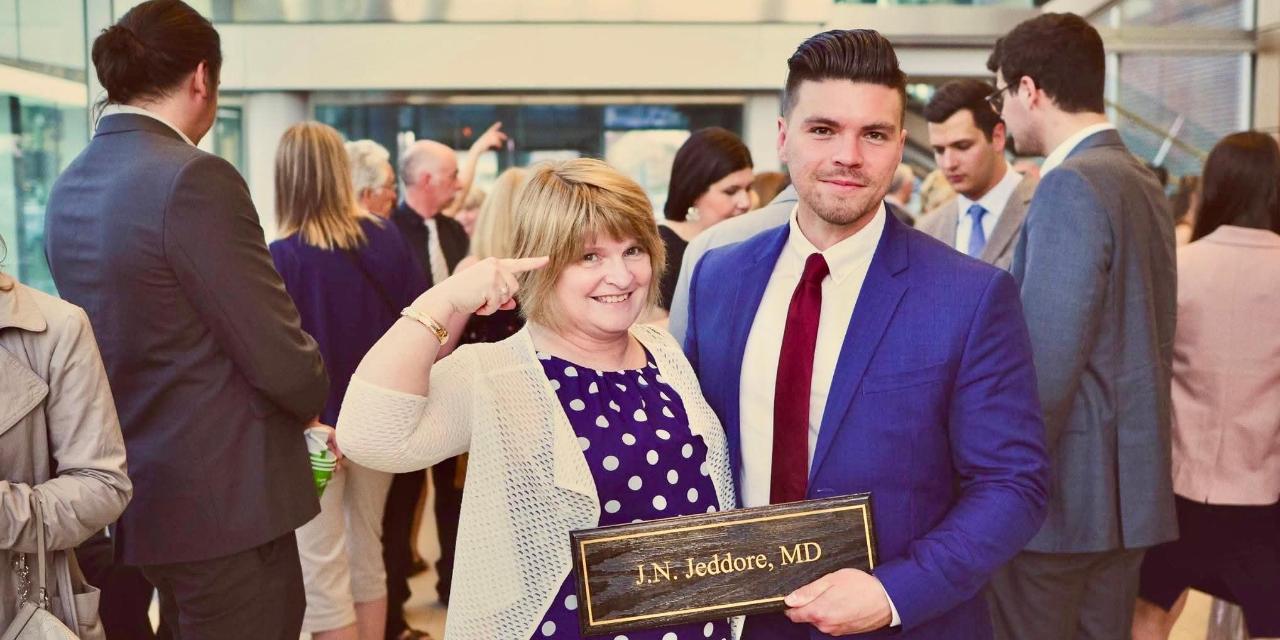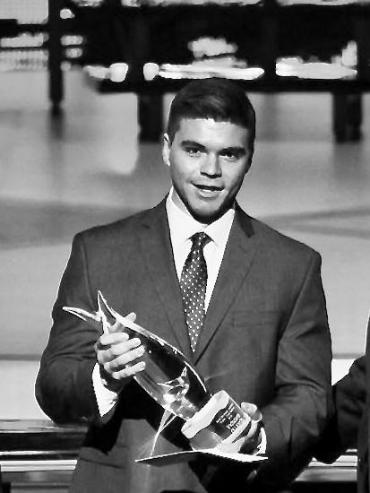Where the healing begins
After earning his bachelor of science degree in biochemistry at Memorial University, Dr. John Jeddore, a member of Miawpukek First Nation, reached a crossroads. What would he do next with his knowledge and skill set? What career path would he follow?
A trusted family member advised him to think of it like this: if he could plot a conceptual graph to find the intersection between his interests and the greater need, he might find a way forward.
Where the greater need existed would later be revealed in a conversation with Saqamaw Mi’sel Joe, who was at that time both the administrative and traditional chief of Miawpukek First Nation.
In health-care systems across Canada, Indigenous patients face systemic barriers, a lack of culturally sensitive care and underrepresentation among practitioners. The effects of these issues on Indigenous communities are well-documented: shorter life expectancy, higher rates of chronic illness and mistrust toward medical institutions.
It was Saqamaw Joe’s hope that Dr. Jeddore could act as a bridge between Indigenous ways of knowing and the knowledge of western medicine.
Raised to respect the wisdom of the chieftainship, Dr. Jeddore’s path was made clear that day.
He became the first person from his community accepted into medical school at Memorial University.
While his future may have seemed unclear for a time, his commitment to his community had never been in doubt.
He comes from a long line of Mi’kmaw storytellers and activists and grew up immersed in the culture. He learned the Mi’kmaw language in school. He became a grass dancer and a member of a drum group.
During the summer, he would hike the traditional trapping grounds of his ancestors and perform in his community’s annual powwow.
And as an undergraduate, he returned home every summer to work at the Mi’kmaq Discovery Centre, which offered the chance to introduce visitors to the region and teach people about Mi’kmaw history and culture.

Dr. John Jeddore and his mom, Brenda Jeddore, at a celebratory event for medical graduates in 2017. Photo courtesy of John Jeddore.
It was also as an undergraduate that he brought a Mi’kmaw perspective to Memorial, a perspective that was missing when he first arrived on the St. John’s campus.
He became involved with the Memorial University Student’s Union (MUNSU) in 2010 after being elected as the union’s Indigenous student representative.
With MUNSU, he joined the fight to improve the Post-Secondary Support Program, which provides federal funding to Indigenous students. He also became involved with the Stolen Sisters campaign, a social-justice movement advocating for the safety of Indigenous women and girls in Canada, a population disproportionately affected by violence.
He was later selected to represent Indigenous students in the province within the Canadian Federation of Students.
In the wider community, he volunteered with the organization now known as First Light, teaching drumming and language to help urban Indigenous youth connect with their culture. He organized a large Indigenous art exhibition at The Rooms and started a popular Mi’kmaw Word of the Day feature on his YouTube channel.
And to express his perspective and dispel cultural myths, he started writing a monthly column for The Independent titled “Traditional Voice.”
His efforts were recognized nationally when he received the Indspire Special Youth (First Nation) Award in 2014 for his community, cultural and academic achievements.
In 2017, he graduated with his MD.
Today, Dr. Jeddore is a practising neurologist and an assistant professor with Memorial’s Faculty of Medicine.
He’s worked with what is now known as the Indigenous Health Initiative to teach medical students about Indigenous issues and cultural sensitivity.
Within the faculty, he’s become a kind of unofficial cultural liaison, fielding questions and receiving calls from colleagues seeking guidance on how to best serve their Indigenous patients.
Embracing this role, he’s let everyone know that when it comes to improving Indigenous health, he’s always available, always on call.
He has spoken publicly about the need to decolonize medicine and ensure that Indigenous people have access to care that honours their knowledge and experiences. He contributes to conversations that reach far beyond the halls of academia — conversations about reconciliation, representation and the future of Indigenous health.
And for the next generation, he’s become a visible role model. Young people from Miawpukek and beyond can look to someone who has walked a similar path, faced the same doubts and proven what’s possible.
He’s restoring trust and reimagining what medicine can be when it’s built on equity and respect.
Through his practice, his presence and his persistence, Dr. Jeddore is healing people and healing relationships. He’s helping to build a health-care system that both serves Indigenous communities and stands with them.
